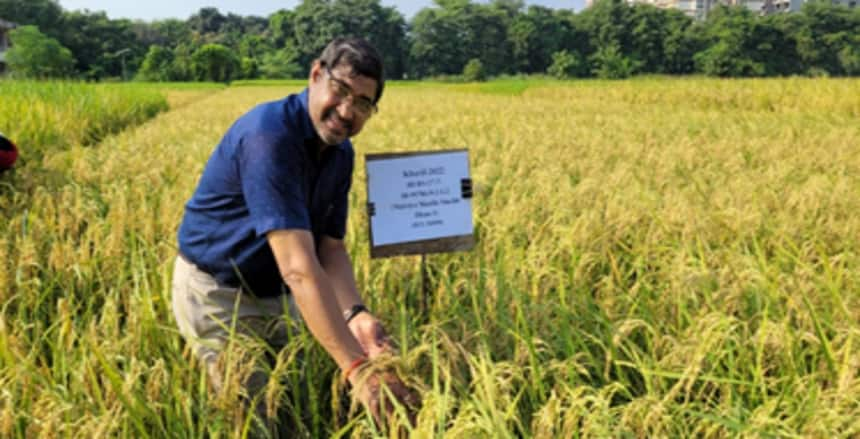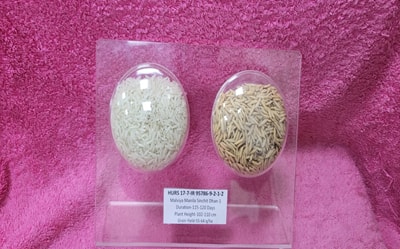BHU scientists develop new variety of rice; ICAR approves
Magdhi Diksha | May 8, 2023 | 01:52 PM IST | 1 min read
The new variety of rice is approved from ICAR after being tested at national, zonal and local level for three years.

NEW DELHI: Agriculture scientists at Banaras Hindu University (BHU) have developed a new variety of rice in collaboration with International Rice Research Institute (IRRI), Manila, Phillipines. The newly developed variety of rice has been apporved by Variety Identification Committee (VIC) from Indian Council of Agricultural Research (ICAR).
The new variety of rice is called “malviya manila sinchit dhan-1”. It took 15 years for the agricultural scientists to complete the process. The team of scientists working on this project were being led by Shravan Kumar Singh who is from Institute of Agricultural Sciences at BHU. Other members of the team were Jayasudha S, Dhirendra Kumar Singh, Akansha Singh (BHU) and sciencts from IRRI, Arvind Kumar and Vikash Kumar Singh.
Also Read | How IIT Kanpur’s student collective is helping break the cycle of poverty
The ICAR approval is based on an all India testing format at three levels: national, zonal and local. According to the reports, the new variety of rice “malviya manila sinchit dhan-1” performed well at all three levels in the past three years. Following this, ICAR announced its approval at its 58th Annual Rice Group Meeting which took place from May 4-5 at Assam Agricultural University Jorhat.
 Sample of new variety of rice "malviya manila sinchit dhan-1"
Sample of new variety of rice "malviya manila sinchit dhan-1"
As per the official statement: “The variety matures early in 150 to 120 days in transplanted condition with medium plant height of 102 to 110 cm and gives a higher grain yield of 55 to 64 quintals per hectare. The variety also shows resistance/tolerance to major diseases and insects like Brown spot, Bacterial Leaf blight, False Smut, Stem Borer, Leaf folder, Brown Planthopper, Gall midge etc. The seed of this variety will be available to the farmers from next year Kharif 2024.”
Follow us for the latest education news on colleges and universities, admission, courses, exams, research, education policies, study abroad and more..
To get in touch, write to us at news@careers360.com.